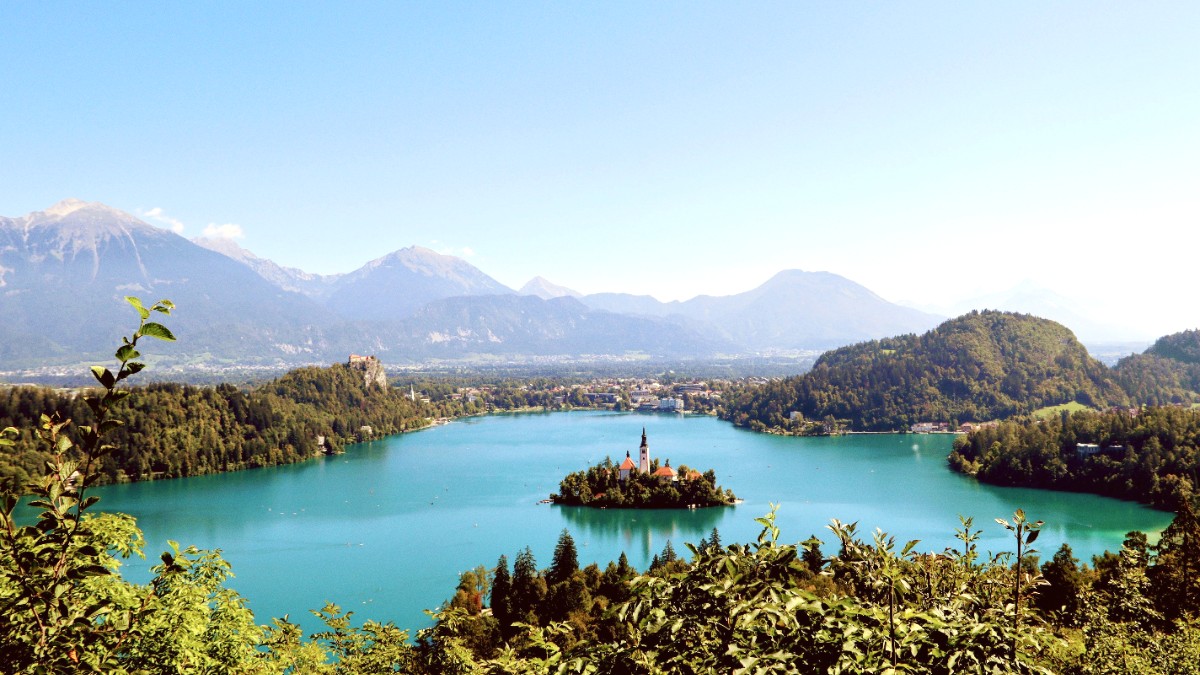
Julian Alps, Slovenia
Triglav National Park is Slovenia's only national park, a strictly protected area. Visitors must adhere to park rules: stay on marked trails, do not litter.
Significant efforts maintain the lake's water quality and prevent pollution. Motorized boats prohibited (except electric tour boats). Swimming permitted in designated areas.
Slovenia a global leader in sustainable tourism. Many accommodations and tour operators participate, certified for environmental and social responsibility.
Your travel choices shape the ecological footprint of your visit.
Slovenia has robust recycling programs. Find separate bins for paper, plastic/metal, glass, organic waste. Reduce waste generation. Avoid single-use plastics. Bring a reusable water bottle (E.g., Hydro Flask) as tap water safe to drink. Carry reusable shopping bag.
Consider offsetting flight emissions through accredited carbon offset programs (Terrapass). Prioritize walking, cycling, or public transport over taxis/rental cars. Seek out hotels or tour operators with environmental certifications (Slovenia Green, Ecobnb). Many guesthouses naturally operate sustainably.
Always carry out everything you carry in. Leave no trace of your visit in natural areas.
Cultural sensitivity your visit to Bled respectful, creating meaningful connections.
Support local crafts and traditional products. When buying souvenirs, choose items made by local artisans (wooden crafts, lace, honey) rather than mass-produced imports. Attend traditional events, folk performances, or visit museums that preserve Slovenian heritage. This aids local traditions.
Learn a few basic Slovenian phrases. Politeness and patience valued. Let locals initiate personal conversations. Keep noise levels down in quiet areas, especially residential neighborhoods and natural parks.
Always ask for permission before taking close-up photos of individuals, especially children, in rural areas, or religious settings. Not everyone wishes to be photographed. Be discreet when taking photos in places of worship or private businesses. Respect any 'No Photography' signs.
When visiting churches or other religious sites (like the Church on Bled Island), dress modestly. This means covering shoulders and knees. Be quiet and respectful inside; avoid loud conversations or disruptive behavior. Turn off your phone or put it on silent. Avoid using flash photography unless explicitly permitted.
By practicing cultural sensitivity, you ensure your visit to Bled is respectful and contributes positively to the local community, creating more meaningful connections.
Support by buying genuine local products.
A few words go a long way.
Respect residential and natural peace.
When visiting the Church on Bled Island, dress respectfully. Cover your shoulders and knees.
Responsible travel involves considering the economic influence of your choices. This leads to your visit benefiting the local community and supporting sustainable development.
Choose guesthouses, family-run hotels, or 'Turistična Kmetija' (Tourist Farms) owned and operated by locals. This money directly supports Slovenian families and small businesses. Opt for local guides when booking tours (hiking, rafting). Their knowledge directly benefits the local economy.
Dine at local restaurants and cafes rather than international chains. Buy groceries and supplies from small local shops and markets. Use local transport services (buses, local taxis, Pletna boats) which keep money within the community.
Purchase souvenirs and products directly from local artisans or certified fair-trade shops. Look for products that clearly state they are made in Slovenia. This verifies fair wages and good working conditions. Avoid items from endangered species or those that exploit resources unethically.
Buy from local artisans and look for 'Made in Slovenia' products. Supports fair wages. Support broader conservation efforts through organizations like The Rainforest Site.
Assess animal welfare in activities. Avoid illegal activities and be cautious of unregulated services that exploit workers or operate unsustainably.
If you wish to make a charitable contribution, do so through established local charities or non-profit organizations rather than giving directly to individuals on the street.
If you wish to make a charitable contribution, do so through established local charities or non-profit organizations rather than giving directly to individuals on the street. This ensures donations are used effectively.
Choose locally owned restaurants and shops. Your spending directly supports the people of Bled.